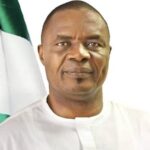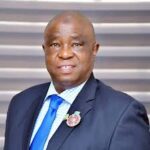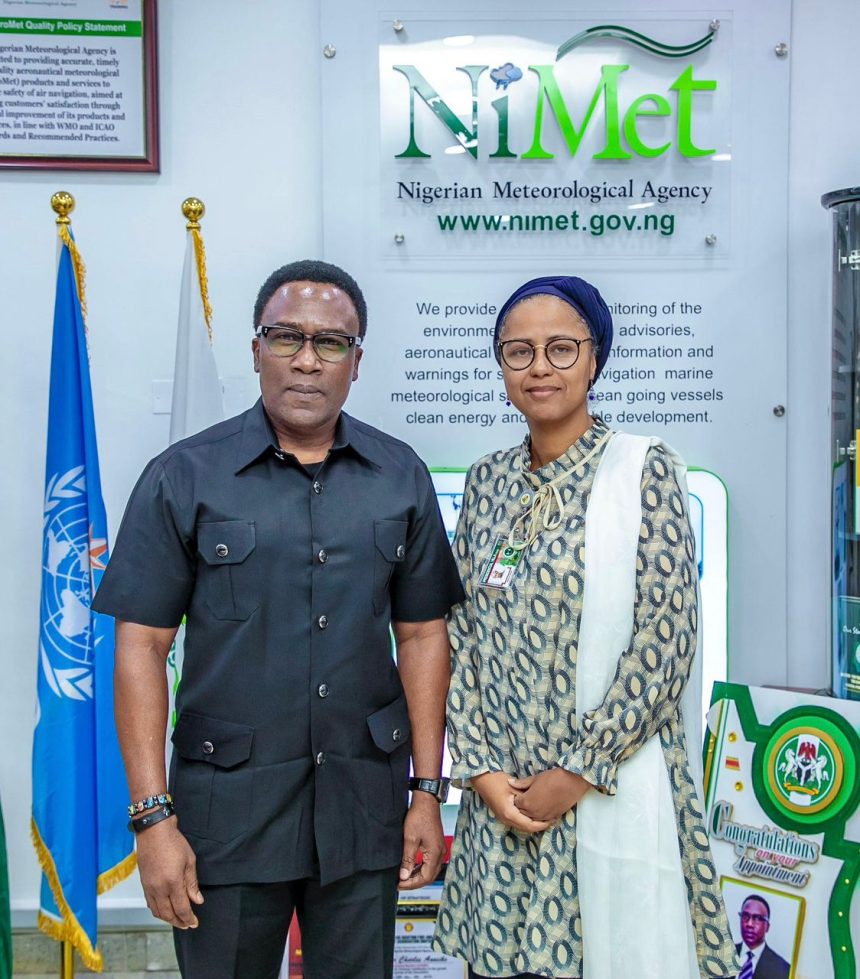Left to Right: Professor Charles Anosike, Director General and Chief Executive Officer of Nigerian Meteorological Agency (NiMet), and Marion Moon, Secretary of the Board of Presidential Food Systems Coordination Unit (PFSCU) and Technical Assistant on Agriculture to the President Bola Ahmed Tinubu, during a meeting in the office of the DG/CEO of NiMet in Abuja on Thursday, 22nd August 2024.
By Chidiebere Ugwu
Officials of the Presidential Food Systems Coordination Unit (PFSCU), on Thursday, 22nd August 2024, paid a courtesy visit to the Director General and Chief Executive Officer of the Nigerian Meteorological Agency, (NiMet), Prof. Charles Anosike.
The PFSCU team was led by Marion Moon, Secretary of the PFSCU Board and Technical Assistant on Agriculture to the President in the Office of the Vice President. Speaking at the meeting, Ms Moon said that PFSCU recognizes the critical job that NiMet does in ensuring food security in the nation.
“Given the current food crises in the country and the importance of the agricultural sector to Nigeria, Mr President approved the creation of the PFSCU in June 2024. The unit is anchored in the office of the Vice President and supports His Excellency in providing strategic data analysis that will enable Mr President to make decisions aimed at achieving food security in Nigeria, and other priorities set out in the renewed hope agenda, and transforming them into action.”
“PFSCU is focusing on food systems. We want to expand the food security dashboard. It’s very important that Mr. President and the economic team have the right information at the right time. This is where NiMet comes in. A key part of that is metrological data. We need to plan, especially now with climate change. We should be able through data from NiMet and other partners and stakeholders advise Mr President and other decision-makers at the highest level on how to mitigate the risks. Right now, we’re being bombarded with issues of flooding and drought. We want that information to sit right there with Mr. President, when he’s sitting with his ministers, the governors, other decision-makers, and stakeholders”.
Responding, Professor Anosike remarked that NiMet is doing so much as the agency has over 100 years of meteorological and climate data. “Weather forecasting is the primary thing that we do as we observe and monitor the atmosphere. Climate science supports adaptation and mitigation strategies, so we’re involved in all adaptation and mitigation activities. The early warning aspect of it is a United Nations (UN) initiative so NiMet is embedded in it because of our national and international obligations. We have an obligation to meet and to ensure that everyone is covered by early warning and climate disaster”.
Continuing, Professor Anosike said that some of the things NiMet does are already out there in the public, for example, the annual seasonal climate prediction which is published in different local languages and is downscaled to farmers in the states. NiMet also uses radio and other channels to disseminate the information and it enables farmers and others to make better decisions.
“We will work with PFSCU and provide the data and information the way it is required for the food security dashboard”.












